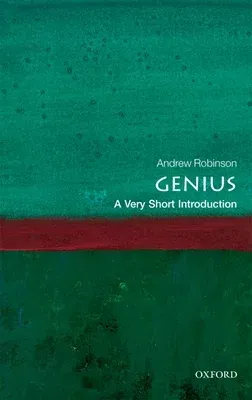Andrew Robinson
(Author)Genius: A Very Short IntroductionPaperback, 29 January 2011

Qty
1
Turbo
Ships in 2 - 3 days
Only 2 left
Free Delivery
Cash on Delivery
15 Days
Free Returns
Secure Checkout

Part of Series
Very Short Introductions
Print Length
152 pages
Language
English
Publisher
Oxford University Press, USA
Date Published
29 Jan 2011
ISBN-10
0199594406
ISBN-13
9780199594405
Description
Product Details
Author:
Book Format:
Paperback
Country of Origin:
GB
Date Published:
29 January 2011
Dimensions:
10.92 x
17.27 x
1.02 cm
Genre:
Psychological
ISBN-10:
0199594406
ISBN-13:
9780199594405
Language:
English
Location:
Oxford, England
Pages:
152
Publisher:
Series:
Weight:
136.08 gm